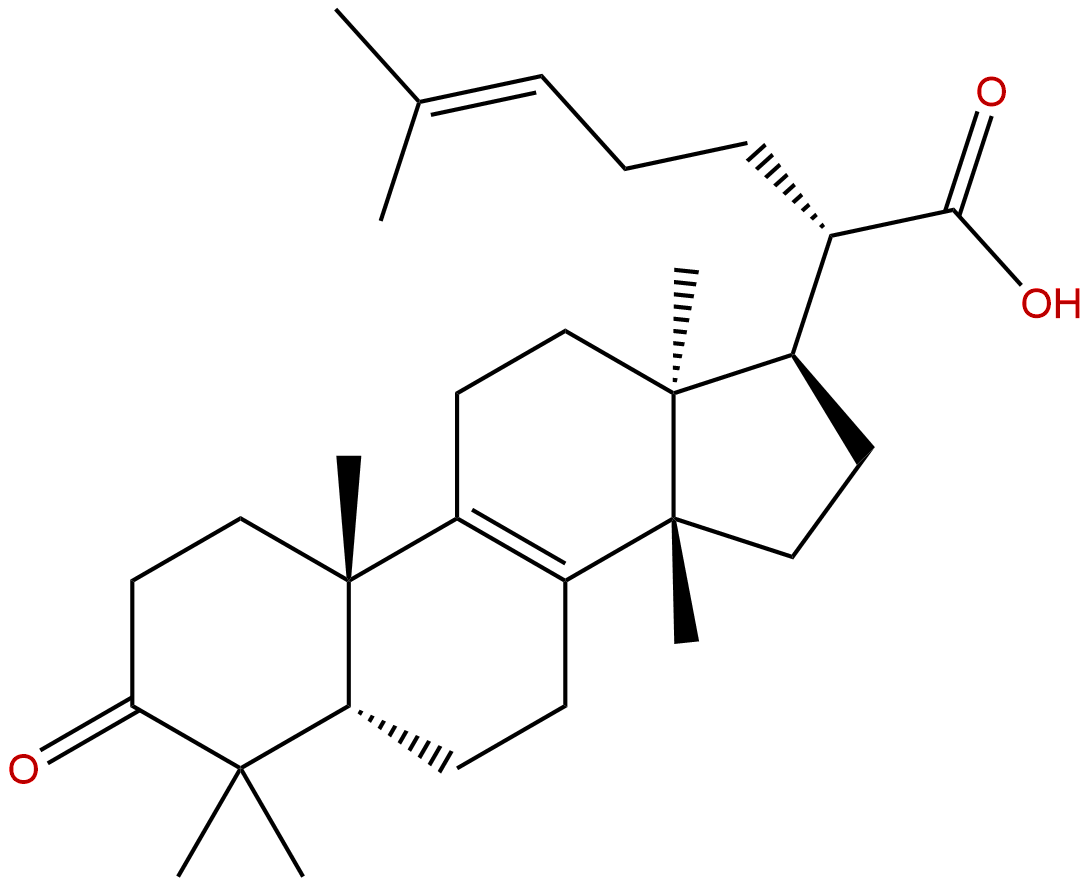
Beta-Elemonic acidCAS No.:28282-25-9
|
||||||||||
 |
|
|
||||||||

| Catalogue No.: | BP1641 |
| Formula: | C30H46O3 |
| Mol Weight: | 454.695 |
Product name: Beta-Elemonic acid
Synonym name:
Catalogue No.: BP1641
Cas No.: 28282-25-9
Formula: C30H46O3
Mol Weight: 454.695
Botanical Source:
Physical Description:
Type of Compound: Diterpenoids
Purity: 95%~99%
Analysis Method: HPLC-DAD or/and HPLC-ELSD
Identification Method: Mass, NMR
Packing: Brown vial or HDPE plastic bottle
The product could be supplied from milligrams to grams. Inquire for bulk scale.
We provide solution to improve the water-solubility of compounds, thereby facilitating the variety of activity tests and clinic uses.
For Reference Standard and R&D, Not for Human Use Directly.
Description:
Beta-Elemonic acid exhibits anti-inflammatory, and anti-cancer effects, it inhibits proliferation by inducing hypoploid cells and cell apoptosis, the anticancer effects of beta-Elemonic acid are related to the MAPK signaling pathway, ROS activation and glutathione depletion in human A549 lung cancer cells. Beta-Elemonic acid exhibits prolyl endopeptidase inhibitory activities.
References:
Oncol Rep. 2016 Jan;35(1):227-34.
β-Elemonic acid inhibits the cell proliferation of human lung adenocarcinoma A549 cells: The role of MAPK, ROS activation and glutathione depletion.
Beta-Elemonic acid, a known triterpene, exhibits anti-inflammatory effects, yet research on the pharmacological effects of Beta-Elemonic acid is rare.
METHODS AND RESULTS:
We investigated the anticancer effects and the related molecular mechanisms of Beta-Elemonic acid on human non-small cell lung cancer (NSCLC) A549 cells. The effects of Beta-Elemonic acidon the growth of A549 cells were studied using a 3-(4,5)-2,5-diphenyltetrazolium bromide (MTT) assay. Apoptosis was detected using Annexin V staining. The effect of Beta-Elemonic acid on the cell cycle of A549 cells was assessed using the propidium iodide method. The change in reactive oxygen species (ROS) was detected using a dichlorodihydrofluorescein diacetate (DCFH-DA) assay with microscopic examination. The expression levels of Bcl-2 family proteins, mitogen-activated protein kinase (MAPK) family proteins and cyclooxygenase 2 (COX-2) were detected using western blot analysis. Our data revealed that β-elemonic acid strongly induced human A549 lung cancer cell death in a dose- and time-dependent manner as determined by the MTT assay. Beta-Elemonic acid-induced cell death was considered to be apoptotic when the phosphatidylserine exposure was observed using Annexin V staining. The death of human A549 lung cancer cells was caused by apoptosis induced by activation of ROS activity, increase in the sub-G1 proportion, downregulation of Bcl-2 expression, upregulation of Bax expression and inhibition of the MAPK signaling pathways.
CONCLUSIONS:
These results clearly demonstrated that Beta-Elemonic acid inhibits proliferation by inducing hypoploid cells and cell apoptosis. Moreover, the anticancer effects of Beta-Elemonic acid were related to the MAPK signaling pathway, ROS activation and glutathione depletion in human A549 lung cancer cells.